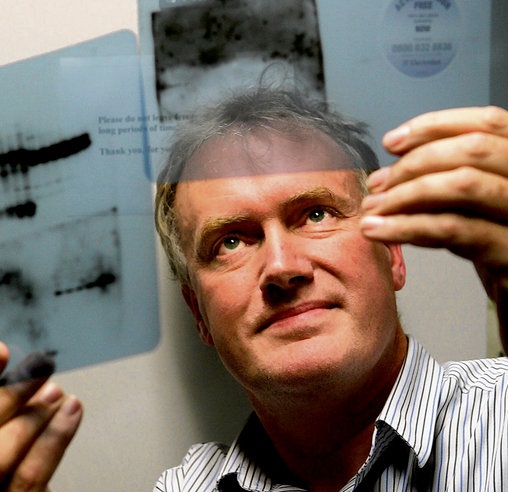Trinity’s Professor of Biochemistry, Prof Luke O’Neill, has been awarded a lab in GlaxoSmithKline (GSK) in Stevenage, England. O’Neil will act as Trinity supervisor to two Trinity PhD students, whom GSK will fund to work with their scientists, researching immunology and inflammatory diseases.
Speaking to The University Times, O’Neill explained that he will be conducting interviews in the coming weeks to select candidates. It will be a fully funded PhD programme, with GSK covering all fees, a stipend and other consumable costs. There has been strong interest in the positions, with O’Neill having received “hundreds of CVs” from applicants hoping to be considered for a place.
O’Neill holds the position of Professor of Biochemistry in Trinity and specialises in investigating inflammation. O’Neill’s research is targeted towards developing a medicine to combat inflammation. O’Neill is one of the most notable scientists in the world, having been elected a Fellow of the Royal Society in 2016. This prestigious, elite community is the oldest scientific society in existence.
GSK is a healthcare company which works to research and develop pharmaceutical vaccines and other consumer healthcare products. A partnership was proposed to O’Neill by GSK last year. O’Neill was on sabbatical at the time, which he spent working with GSK on immunology.
O’Neill added that GSK “are keen to support students and training in the area of Immunology and to the highest possible level”.
“They knew of Trinity’s international reputation in this area”, he added. O’Neill explained the value of the partnership, saying that Trinity is both interested in collaborating with industry and exploring new models for PhD programmes. O’Neill holds that this connection with GSK will help to achieve these aims: “It’s all about providing students with the best possible educational experience while at the same time helping them ultimately develop a career.”
Trinity already benefits from a similar partnership with Intel, a technology and manufacturing group. The Intel collaboration requires students to complete four hours of workshops facilitated by Trinity’s Careers Advisory Service and 12 hours of workshops facilitated by Intel. Students are also required to complete a written assignment. This programme is available to third-year STEM students and sees two students awarded €2,500. There is also a further €192,000 scholarship for postgraduate students.
GSK currently fund more than 50 PhD students in chemistry through a similar collaboration with Strathclyde University. O’Neill is hopeful about Trinity’s partnership with the company, saying: “We’re hoping this is the start of a major programme.”







